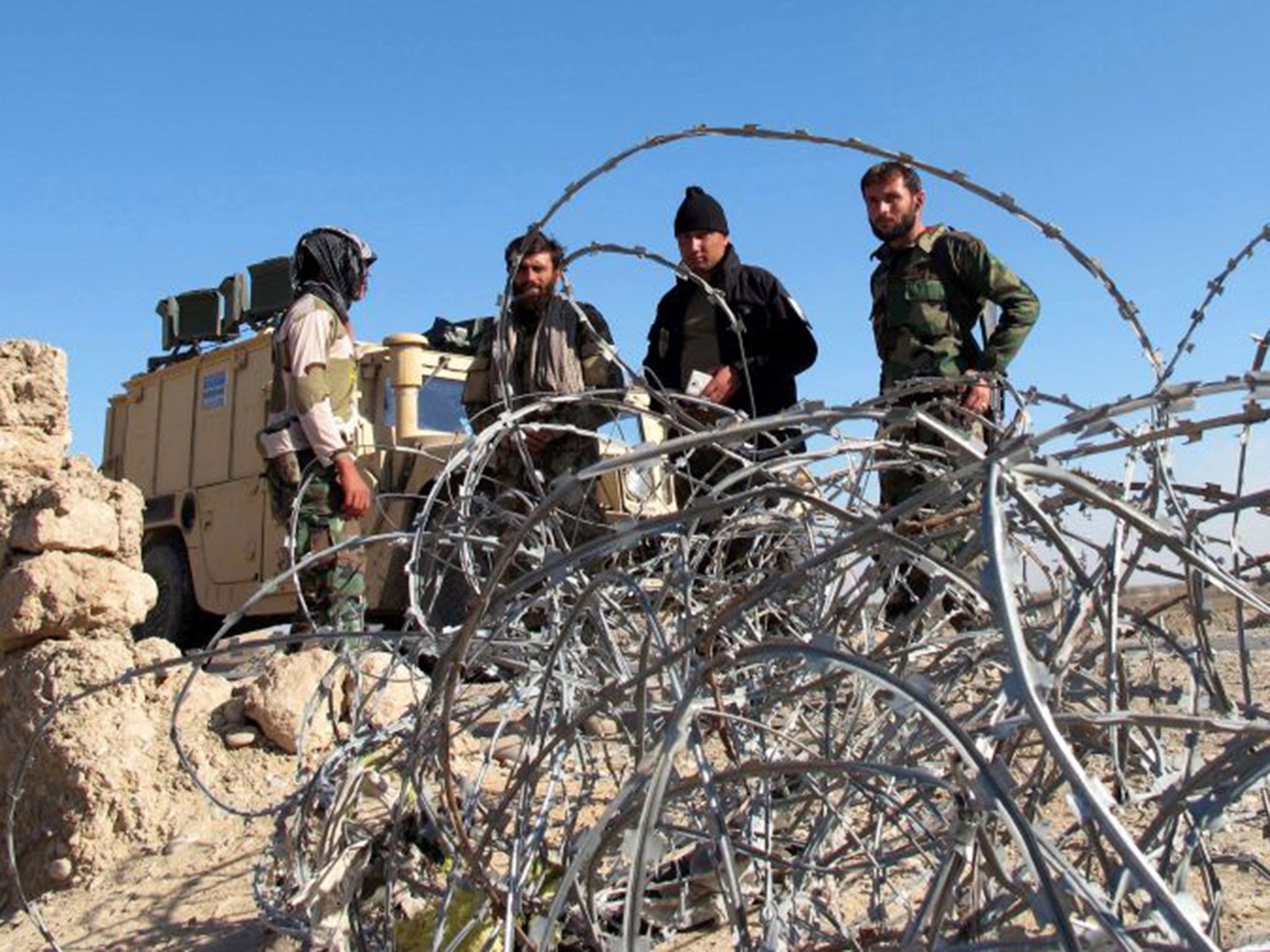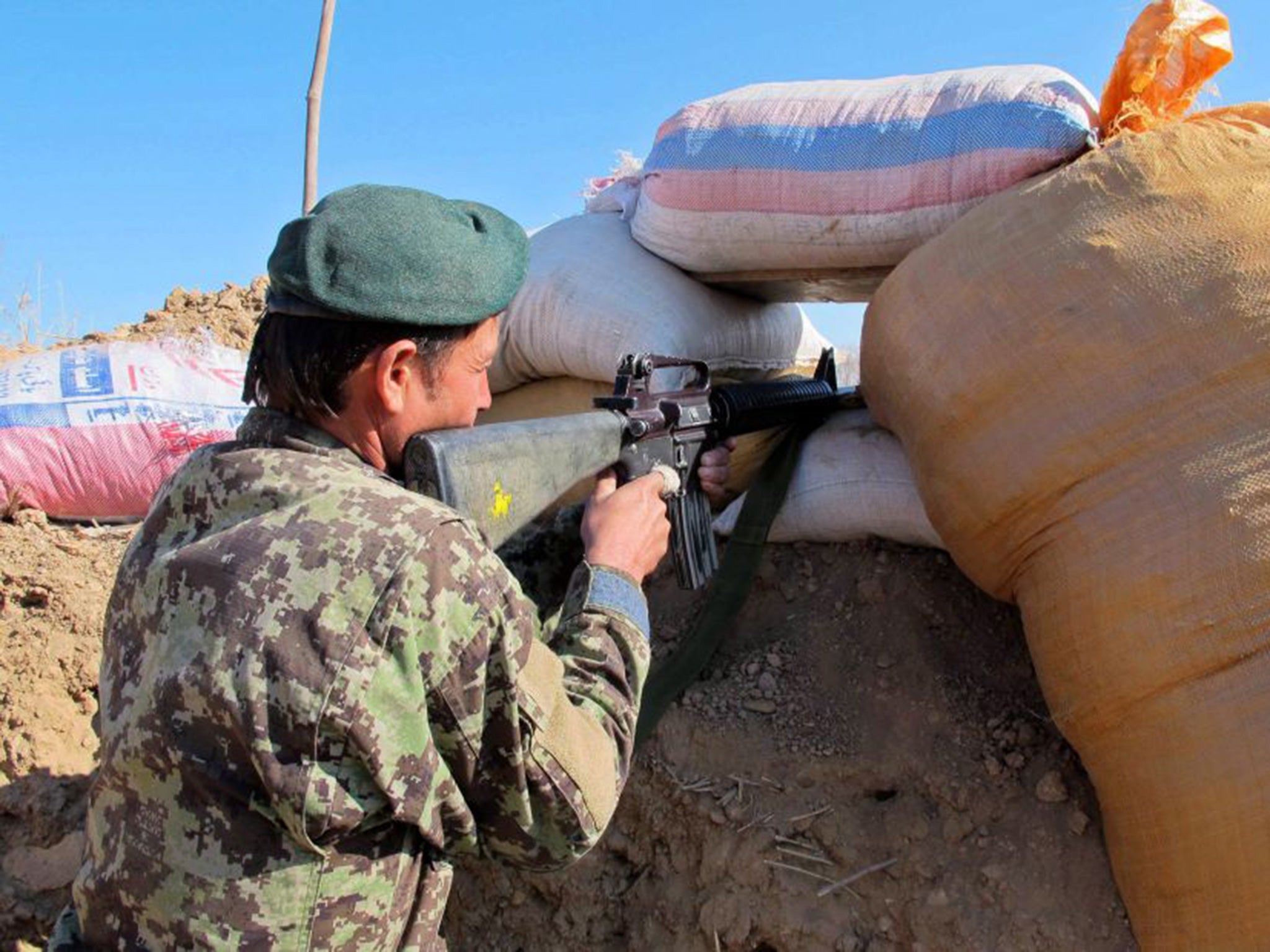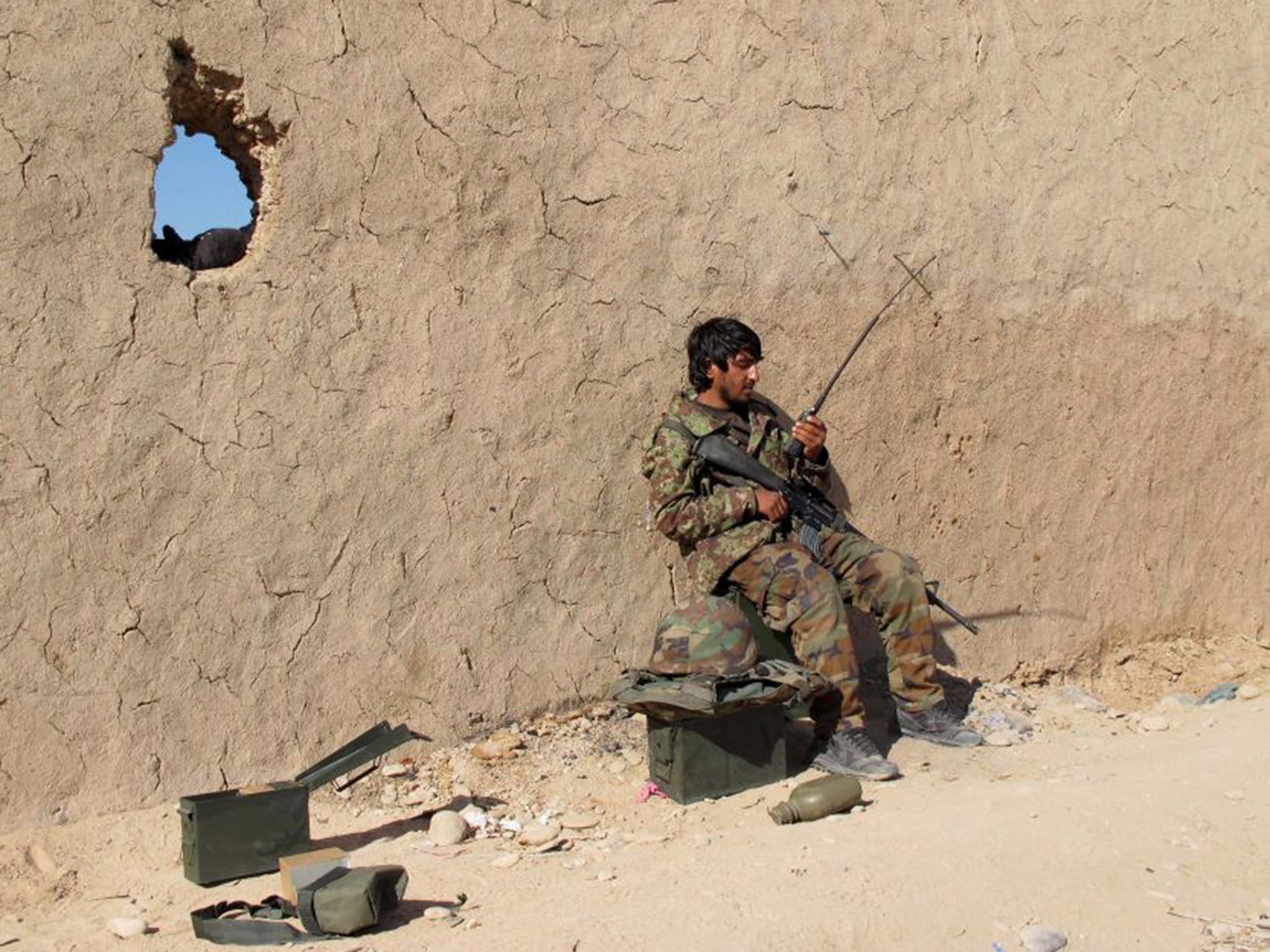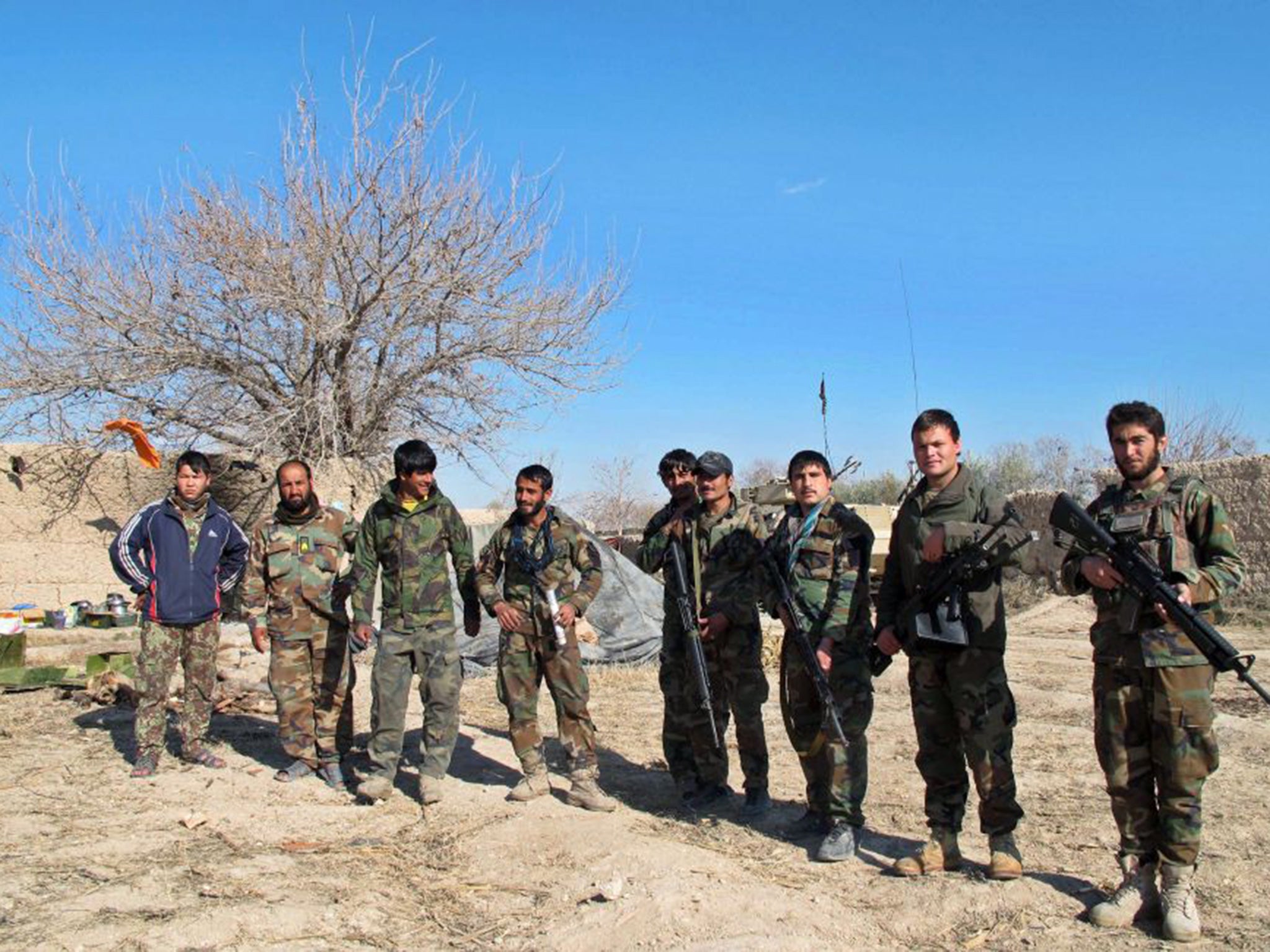Sangin: Taliban take strategic town in Helmand province as Afghan army forced to abandon HQ
Insurgents emboldened by divisions within official Afghan forces make further incursion in the opium-rich region, where hundreds of British soldiers died in recent war

Your support helps us to tell the story
From reproductive rights to climate change to Big Tech, The Independent is on the ground when the story is developing. Whether it's investigating the financials of Elon Musk's pro-Trump PAC or producing our latest documentary, 'The A Word', which shines a light on the American women fighting for reproductive rights, we know how important it is to parse out the facts from the messaging.
At such a critical moment in US history, we need reporters on the ground. Your donation allows us to keep sending journalists to speak to both sides of the story.
The Independent is trusted by Americans across the entire political spectrum. And unlike many other quality news outlets, we choose not to lock Americans out of our reporting and analysis with paywalls. We believe quality journalism should be available to everyone, paid for by those who can afford it.
Your support makes all the difference.On the second floor of the Haji Laal Jaan hospital a small group of Afghan soldiers awaited their fate. The Taliban were approaching and were now on the floor below them, they frantically told their commanders.
The 25 soldiers hiding in the building had not eaten for four days, and were among a shrinking contingent fighting to the last to hold Sangin, a strategic town in Helmand province, where hundreds of British soldiers were killed over the previous decade. Their fight appeared to be almost over, amid reports that the Taliban had completed their takeover of the centre of the town.
Sources in Sangin told The Independent that the Afghan army had been forced to abandon its base and the police headquarters in the town. “The Taliban are in control of the district,” a source said. A Taliban spokesperson later said: “Sangin district has completely collapsed to the Taliban.”
“I fear for them,” said Hashim Alokozay, a Helmand senator, of the soldiers trapped in Sangin. He said an army helicopter had attempted to deliver ammunition and food during the previous night to those holding out against the Taliban. The helicopter left with four bodies and 15 injured soldiers.

A year after a shift in US and Nato policy towards training, not fighting, in Afghanistan, there were not enough coffins to bury the Afghan dead in Helmand, said local officials.
The government of President Ashraf Ghani has dispatched belated reinforcements to Sangin where, despite its victory, the Taliban is seen as unlikely to hold the town. But as the army continues to founder, beset by corruption and low morale, officials believe the Taliban’s conquest of Helmand province, where the poppies that finance the group’s war are grown, will continue.
Critics claimed the transition to an Afghan-led fighting force, overseen by Mr Ghani before he became president, came too soon and left the army ill-equipped to fight an enemy with military and financial support in Pakistan.
Mr Alokozay said Afghan National Security Forces – including the army, local and provincial police – had suffered 12,000 fatalities in the past three months. “We are also very worried about villagers stuck inside their homes, roads are mined, bullets are flying all over people’s homes,” he said. Mr Alokozay said corruption, an endemic problem in Helmand, was spreading. “Soldiers need leadership. We want the central government to pay urgent attention.”
Instead, officials in the US now admit that the Taliban has been “emboldened” by the transition to an Afghan-led campaign. “Insurgents will focus on traditional areas of operation, such as in Helmand and Kandahar, while also demonstrating their influence throughout all of Afghanistan with sporadic attacks in areas across the north and east and in Kabul,” said a December report by the Pentagon.

US defence chiefs now admit the Afghan army is locked in a “tough fight” against a determined foe, supported within Pakistan and under new leadership since the death of Mullah Mohammed Omar. The Taliban is now headed by Mullah Akhtar Mansour with the leader of the feared insurgents, the Haqqani Network, Siraj Haqqani, elevated to Mansour’s deputy. Together, they hope to re-establish an “Islamic Emirate of Afghanistan”.
While remaining active in their traditional strongholds, the opium-rich Helmand in the south, and Logar and Wardak in the east, the Taliban will continue to launch attacks on the capital, Kabul, officials in Washington said. The Pentagon predicts the Taliban will continue to “find and exploit” vulnerability within the Afghan army, “making the security situation still fragile”.
In Kabul, the Afghan defence minister Masoom Stanekzai appealed for increased Nato assistance and military support, particularly air strikes.
A local police commander on front line near Sangin said: “The main problem is that the Taliban have infested the area with mines, road side bombs have cut of supply routes to and from positions. We can’t leave our trenches because the Taliban have snipers. We need more air strikes, more supplies.”

An Afghan commander who fought in Helmand this year added: “We lack intelligence capabilities. When I was deployed in the district we were fighting day and night against an enemy that was always well equipped, well armed and had better communication and supply lines.”
Speaking from Lashkar Gah, south of Sangin, Haji Baqi, a 57-year-old farmer, said his family had fled their homes under Afghan military shelling. “We left with our clothes. Our home was hit with artillery, rooms were destroyed and roof collapsed. My cotton, maize, wheat and opium caught fire.
“We have lost our cows, goats and chickens. I am grateful I am alive with my family members. My home and other homes are booby-trapped by the Taliban, and it is now a Taliban frontline position.”
Many in the West had hoped that the absence of coalition troops from the battlefield would weaken the Taliban’s justification for the armed insurgency – to rid Afghanistan of “malevolent foreign influences”. Yet Washington now acknowledges that the Taliban, as in the siege of Sangin, are content to fight exclusively against fellow Afghans.
While President Barack Obama has conceded that 9,800 US troops will have to remain in Afghanistan throughout 2016, funding for the Afghan government will be cut by $400m (£270m) next year. At the same time, according to a report to the US Congress, government forces will face massed attacks against checkpoints, expanded Taliban control over rural areas, and attacks on weakened provisional police. Helmand, already mostly overrun by the Taliban, will be targeted further.
“If Sangin falls, this fire will burn in more places beyond Sangin,” Mr Alokozay warned.
Join our commenting forum
Join thought-provoking conversations, follow other Independent readers and see their replies
Comments